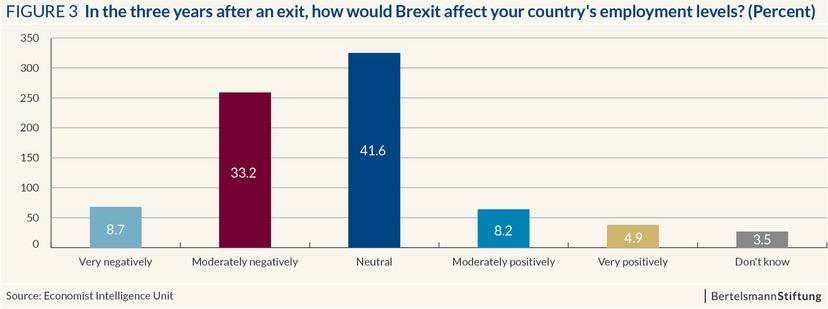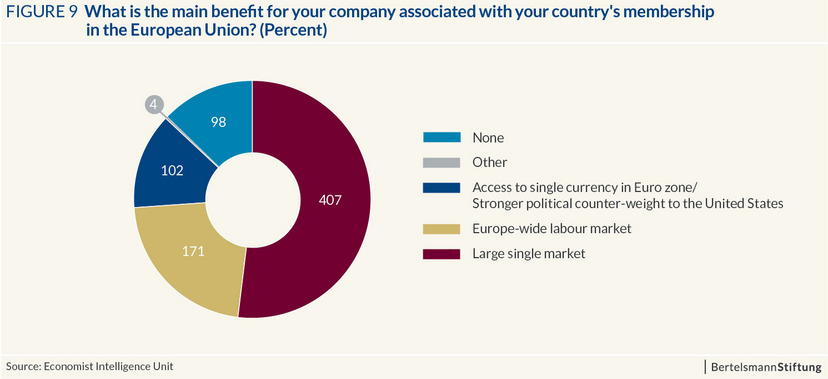Four out of five business leaders in the UK and Germany have clearly expressed their opposition to the hotly debated idea that the United Kingdom should withdraw from the European Union. If the withdrawal were to go ahead, the business leaders predict numerous negative effects for national labor markets as well as for revenues and investments within their own sectors and businesses. Those are the findings from a recent survey by the British Economist Intelligence Unit, carried out on behalf of the Bertelsmann Stiftung.
The findings also show that approximately 80 percent of the entrepreneurs, managing directors and executive employees surveyed want the United Kingdom to remain in the EU. In Germany, this figure is slightly higher than in the UK (83 versus 76 percent). The sectors in Britain most in favor of remaining in the EU are the manufacturing industry, IT and technology companies, and the retail and consumer goods industries, with over 80% of UK representatives in those sectors strongly expressing an opinion to stay. This clear result comes as a surprise, as it had been assumed that the Brexit represented a "best case scenario" for the British, since the United Kingdom would only leave the EU as a political entity while remaining a member of the internal market. This means the country would enjoy a status similar to that of Switzerland or Norway.
Yet business representatives surveyed on both sides of the Channel say they fear that this partial exit from the EU would give rise to significant adverse effects for the economy. For example, 42 percent of respondents foresee negative or even very negative consequences for their respective job markets, fears that are somewhat more pronounced in the UK than in Germany (44 versus 39 percent).






